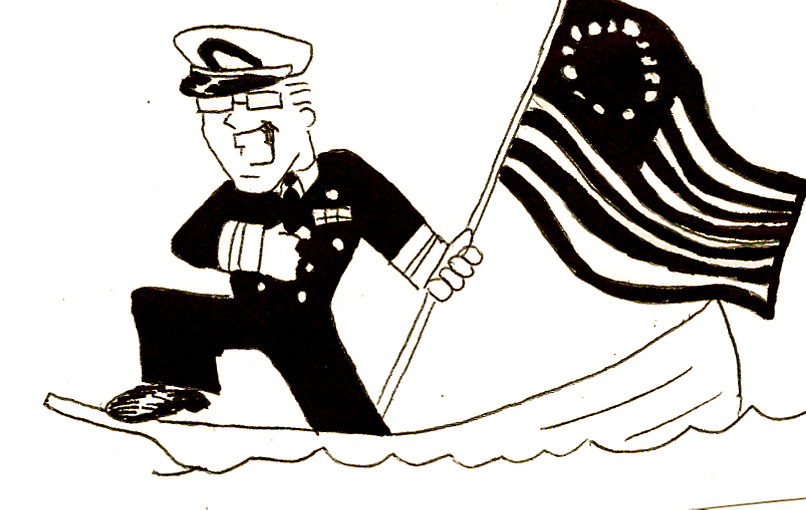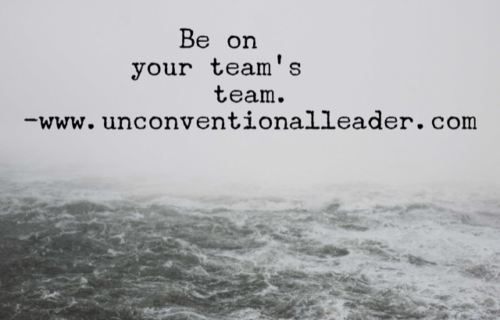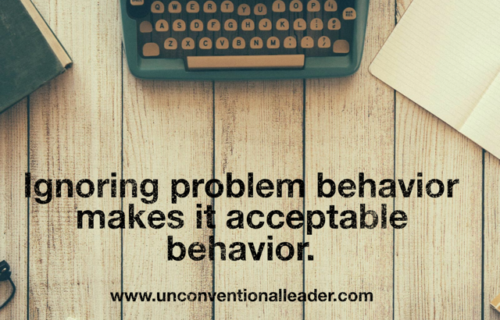
2 Things You Can Do To Lead Great
 It was a dark and stormy night! Actually, it had been dark and stormy for a while. Thousands of allied troops, transports, and supplies were loaded on ships floating in the North Atlantic; waiting for the order that everything was a “go” for the June 6th, 1944 D-Day invasion of France, Operation Overlord.
It was a dark and stormy night! Actually, it had been dark and stormy for a while. Thousands of allied troops, transports, and supplies were loaded on ships floating in the North Atlantic; waiting for the order that everything was a “go” for the June 6th, 1944 D-Day invasion of France, Operation Overlord.
General Dwight D. Eisenhower, the Supreme Allied Commander, knew the risks. Invade while the weather conditions were not ideal, and the mission would fail. Wait, and the entire evolution would have to be postponed until late July – costing time, money and, ultimately more lives. Not to mention it would seriously piss his bosses off. Churchill and Franklin had promised Stalin that an invasion would take place earlier in the year and, Stalin, was pressuring them hard to get it done (he had been pushing hard on the Eastern Front for a long time waiting for a break).
Eisenhower (Ike) was from a small town in Kansas. After attending West Point and commissioned as a Second Lieutenant in the Army, he missed the fighting in WWI due to his being so good at training troops at home, the Army kept him in the US during the war (despite his repeated requests to go overseas). After WWI, he was kept from being in Command because, as General Macarthur’s aide, he served with distinction and was kept in that position much longer than most because he was one of the few that could deal with Macarthur’s direct and theatrical ways. At the onset of WWII, Ike had a lot of staff experience but lacked the practical command and combat experience of other officers like Patton or the British General, Bernard Montgomery.
Long story short, Ike was a hard worker, well liked and had a way with people. This is, in fact, a few of the reasons he rose so quickly to be the Supreme Allied Commander. But, even with all of his staff experience and previous military prowess, an invasion of this size (or type) had never been attempted before and the success (or failure) of the entire evolution rested squarely on Ike’s shoulders. Grasping the enormity of the task at hand, Ike said…“I hope to hell I know what I’m doing!”
All leaders have moments of doubt. The difference between a good leader and a great leader is determined in moments – the moments where a critical decision is made. All decisions leaders make have an element of risk. What do great leaders do to mitigate the risk?
Great leaders reach out to their teams.
Eisenhower knew that he could just unilaterally make the decision either way. Again, he knew the risks. To make the best decision he could, Ike talked to everyone concerned to get his take. He talked, repeatedly, to the weather officers to find out what was on the horizon. He spoke to General’s Montgomery, Tedder and Dempsey. He consulted with his colleague and friend, General Omar Bradley. He got all the information he could and then…he decided.
As leaders, it’s impossible to know everything. That is why we have to count on our team to know what we don’t. Asking for information, opinions and experiences not only gives you, as leader, more credible information in which to make the decision, it also tells your team that you respect and value you them enough to hear what they have to say. Further, since they’ve contributed to the solution, they’ll be more committed to seeing it through.
Then, great leaders empower their teams.
In this case, a decision had to be made either way. Ike made the decision to go ahead with Operation Overlord, and then he went back to his stateroom, lit a cigarette, and waited for his commanders to execute the plan. He didn’t make the decision and micromanage every detail. He was clear on the expectation and let his teams go forward and do what they needed to do.
Teams that are empowered are more reliable, creative, and productive. Why? Because, on a basic human level, we all want to know that what we do matters. When leaders micromanage an evolution, it devalues individual and team contributions and imparts, inadvertently, “I don’t trust you to do this on your own.” By stepping back and letting our teams go, we allow them to flourish. You only have to be clear on the expectation and setting the expectation sets the path. Be clear and they’ll take it from there.
In the end, Operation Overlord (D-Day) was the first multi-national amphibious assault of its magnitude in the history of mankind. Everyone involved gave something that day and many gave all. But, the operation could not have happened with the success it did without a leader at the helm who was humble enough to realize that he didn’t have all the answers and he needed help to make the best decision he could. Further, it wouldn’t have been as successful if individual commanders weren’t empowered to adapt and overcome in order to succeed in promoting the mission.
All leaders have moments of doubt. I know I have. How about you? Are you sitting on a decision because you don’t know what path to take or because the risk may be too high? If so, be like Ike. Reach out to your team, make the decision, and then empower them to go forward and see it to realization. Not every decision made will be a winner but even great leaders know that the reward outweighs the risk when you use your team.





